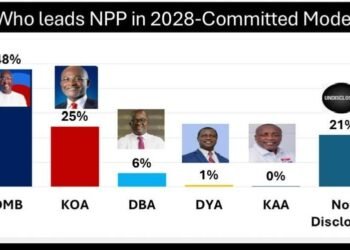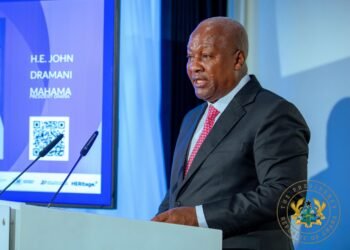Member of parliament for Wa West, Peter Lanchene Toobu, has disclosed that the Ghana Police Service has no qualms complying with the public disorder management, especially in cases of protests in the country.
According to him, there are global standard operating procedures (SOP) for the police to use in dealing with public disorder. He stated that the SOP for police officers to deal with public disorder issues, reflects that of the United Nation.
Mr Toobu noted that the reformed police unit complies with the Globally Adopted Directive use of Force intended for all reformed police units across the world, and the Ghana Police Service is not an exception.
“There are procedures outlined, but you can have all the procedures, and something just happens, and you begin to ask the question, why is it happening not in line with procedure? So, for me, police do not have a problem with everything regarding public disorder management. If it is the training that we need to enforce that they train and retrain, the unit is there, it’s supposed to be a professional unit and they’ll call on them anytime to ensure that civilians enjoy their rights in line with the constitution.”
Peter Lanchene Toobu
Reacting to recommendations by CHRAJ to the effect that the Service develops guidelines for managing protests which incorporates human rights standards for the use by law enforcement officials, particularly the police, Mr Toobu indicated that the Commission should have in the first place addressed the letter to the police council.
He stated that the police council per the constitution supervises the daily operational administration work of the Ghana Police Service being led by the Inspector General of Police.
“So, if you have a problem with the police, I believe the first layer to be addressing such issues to is the police council, and the police council has the minister for interior, minister for justice. All of them are members of the police council and it’s been constituted in such a way that if they agree to do something, the police will be compelled to bring some change.”
Peter Lanchene Toobu
Relevance of police reform units
Recounting the need for reforms units within the police service, Mr Toobu revealed that it took over 20 years for one Inspector General of Police, Mohammed Alhassan, to proffer that there is the need to reshape minds in the service.
To this end, he noted that the then IGP highlighted that the thoughts of police officers were still “militarized”, and the country cannot have a police officer of that nature policing in a democratic state.
“So, he created what we called the reformed police unit, and the reformed police unit are professional police officers who are trained to deal with public order issues. The Public Order Act came in 1994 and it took over 20 years, in 2014 that we created police reform unit by converting the Armour car squadron that is purely militarized to reformed police unit to deal with civilian protest…”
Peter Lanchene Toobu
Emphasizing the relevance of the police reform unit, Mr Toobu indicated that in situations where there are demonstrators and the IGP decides or any police commander decides that it’s not the reformed police unit who controls the crowd, one “can only have chaos”.
However, he explained that with reformed police unit, they are trained to go there as professionals to ensure that citizens enjoy their constitutional rights.
“If you think that this right that they are going to enjoy is going to affect the right of other people and can create issues of national security, of course, you go to the court… I don’t see what the altercation, antagonism [is about]- as if the police are always against people who want to enjoy their rights, that is not right. The civilians should not also think that the police are our enemies…”
Peter Lanchene Toobu
READ ALSO: Ghana Federation of Labour Calls On Gov’t To Address Issues Of Governance























